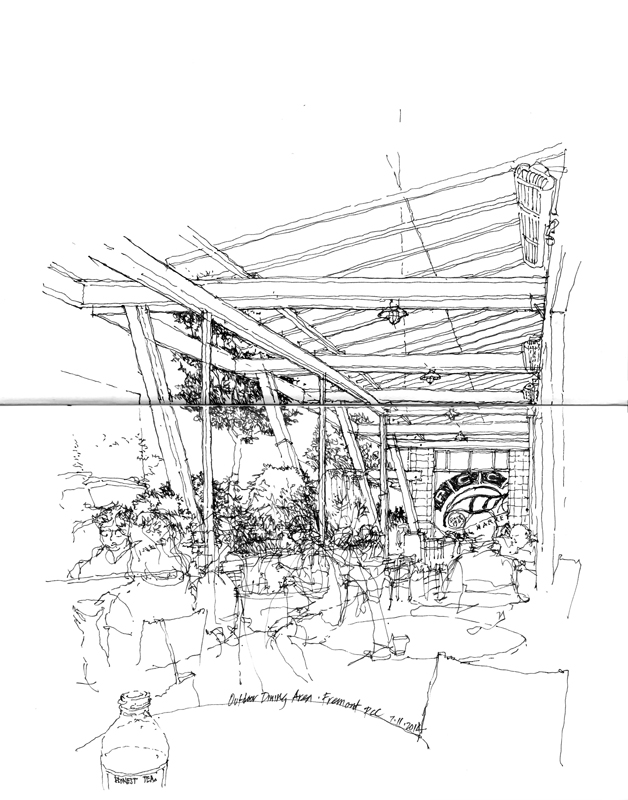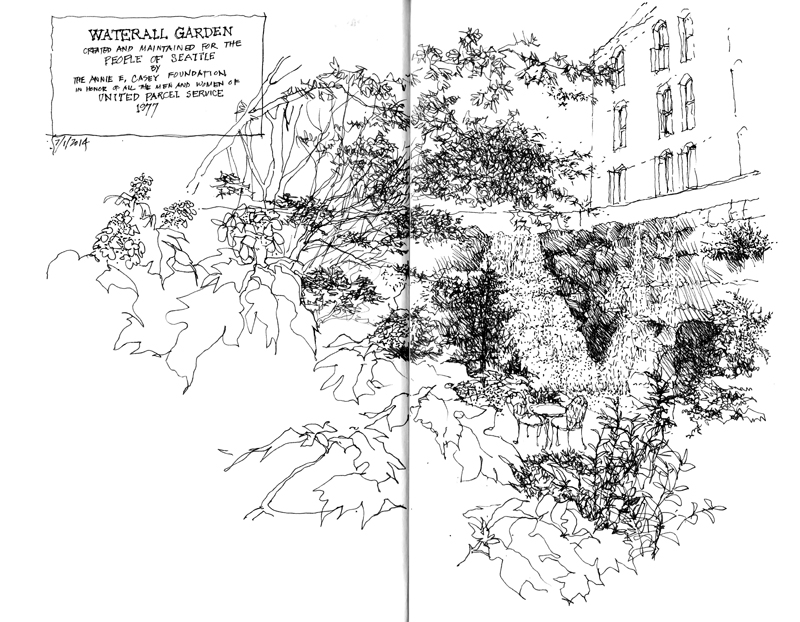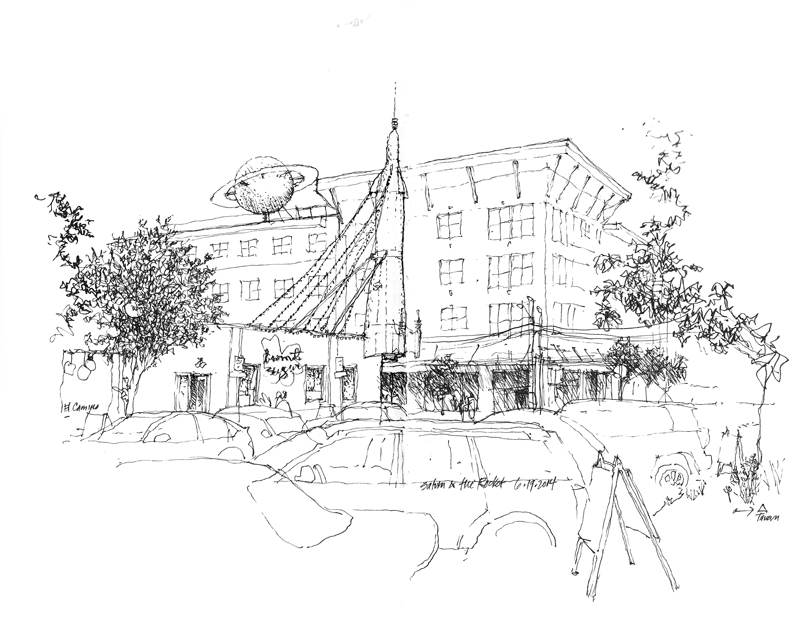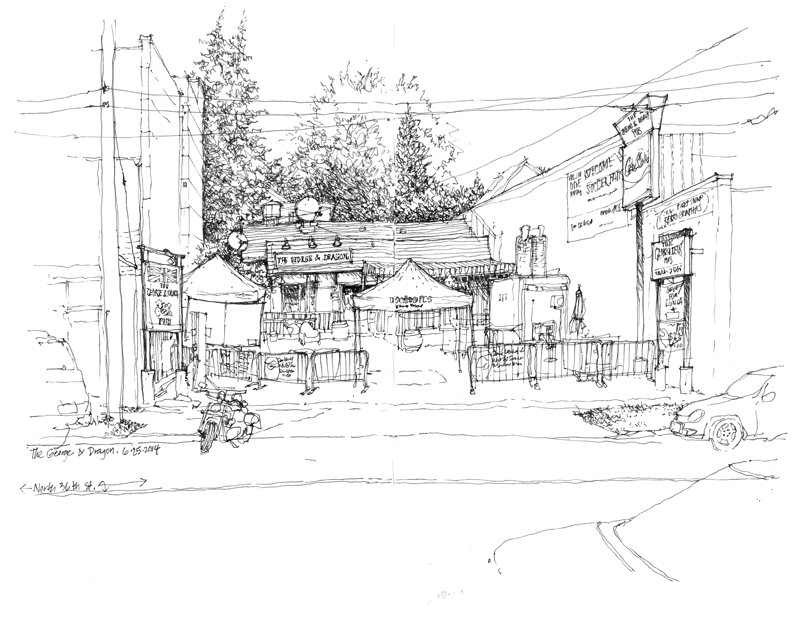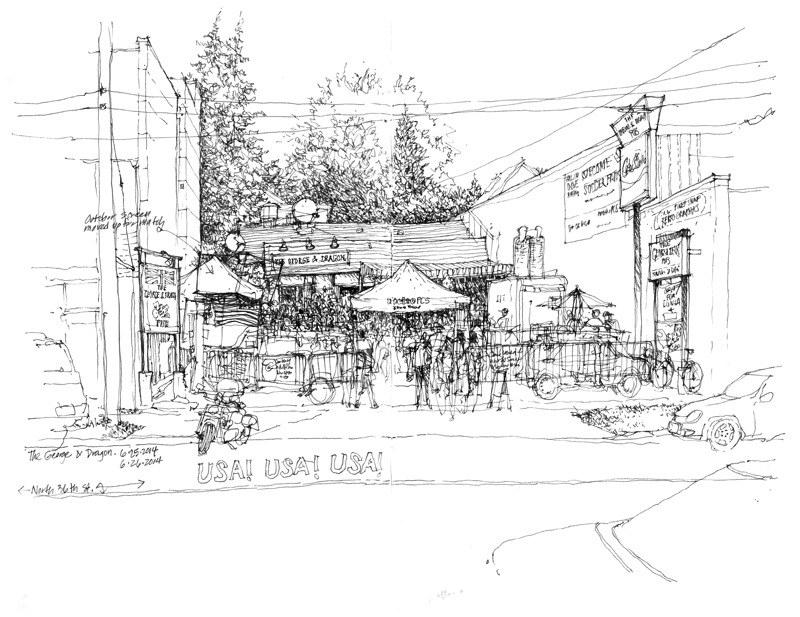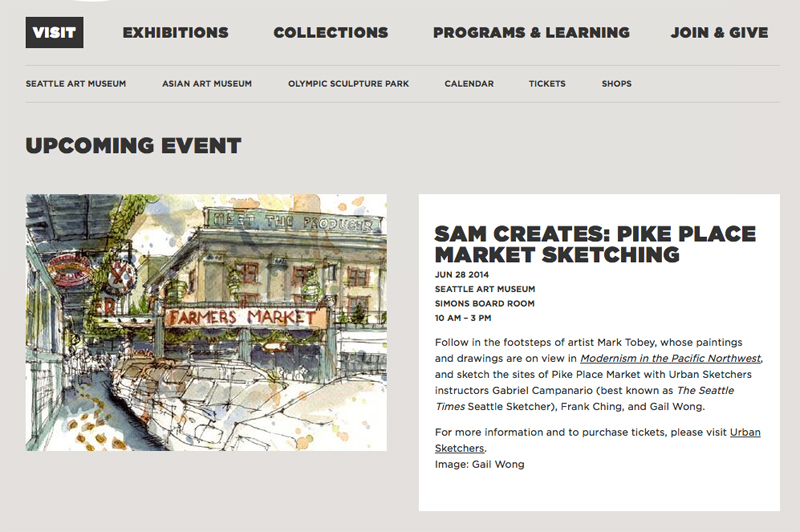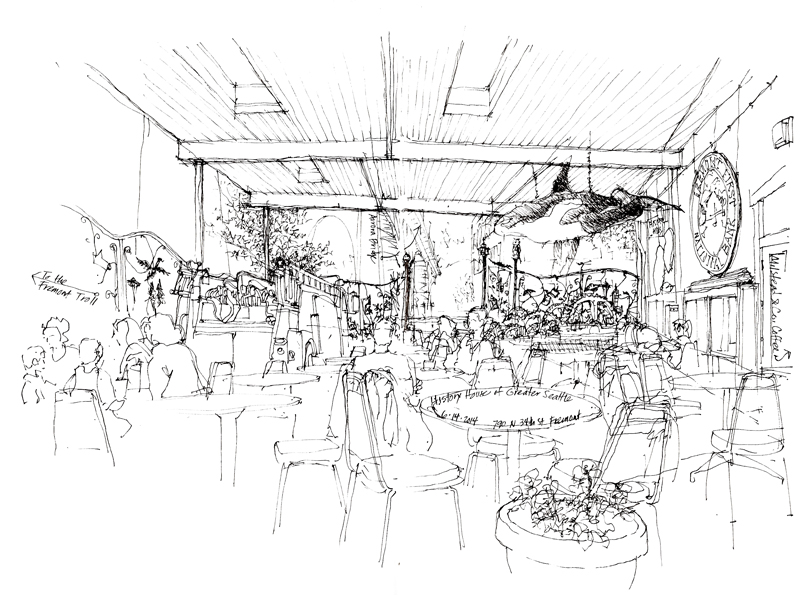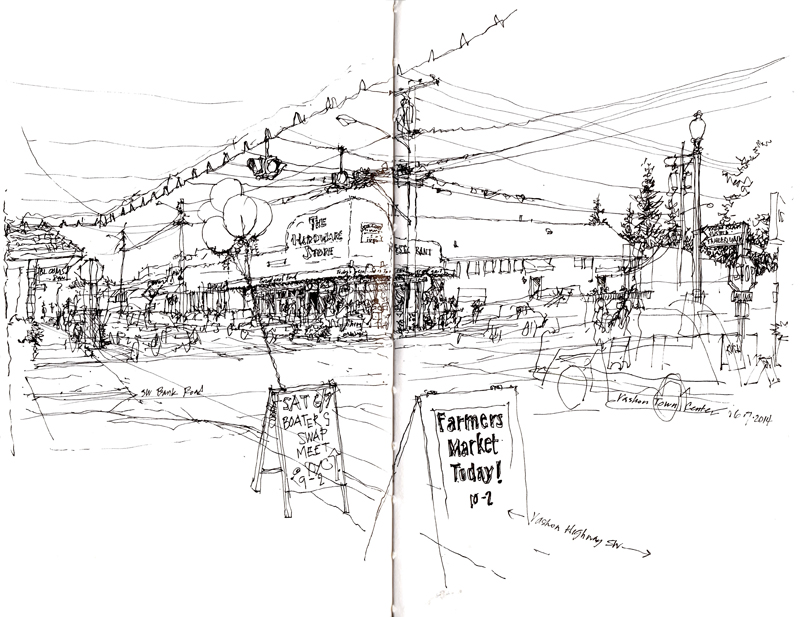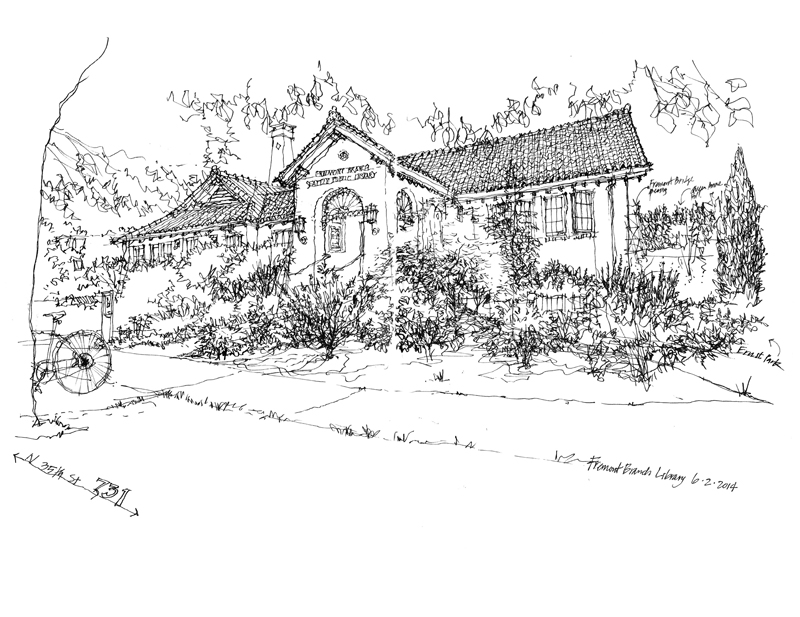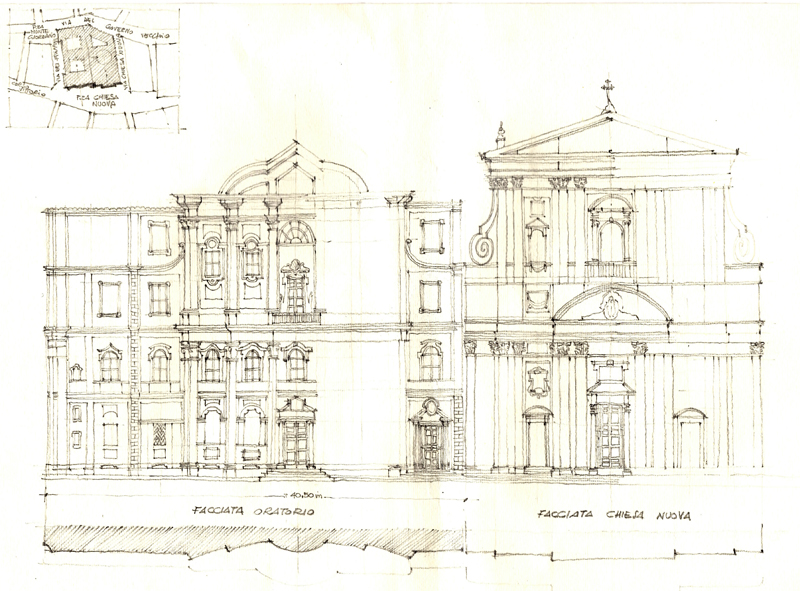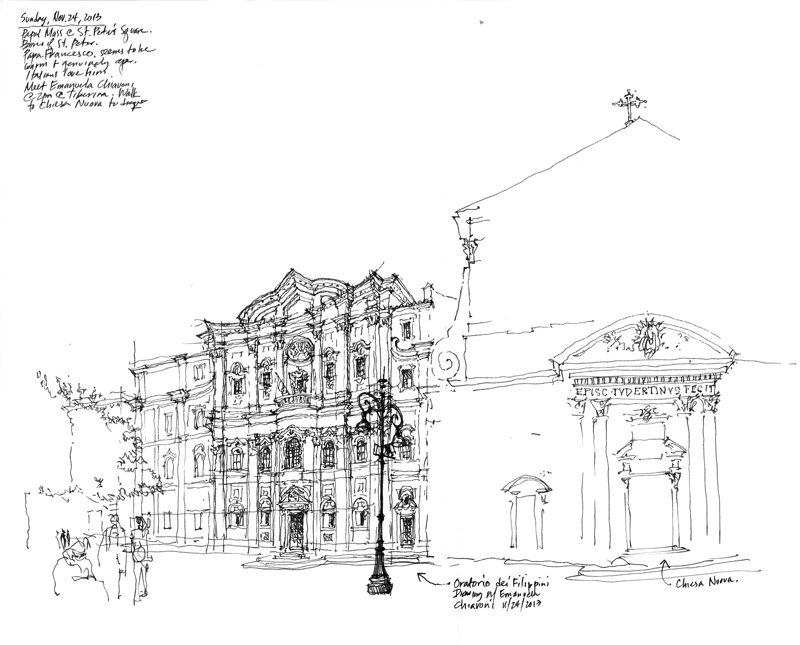When the Seattle Uurban Sketchers met along Alki beach for its monthly meetup yesterday, I decided to draw the Alki Homestead located at 2717 61st Avenue SW. This is one of the few historic log structures remaining in Seattle. The log house, originally called Fir Lodge, was designed by Tom Lin and built in 1904 as a country estate for Gladys and William Bernard.
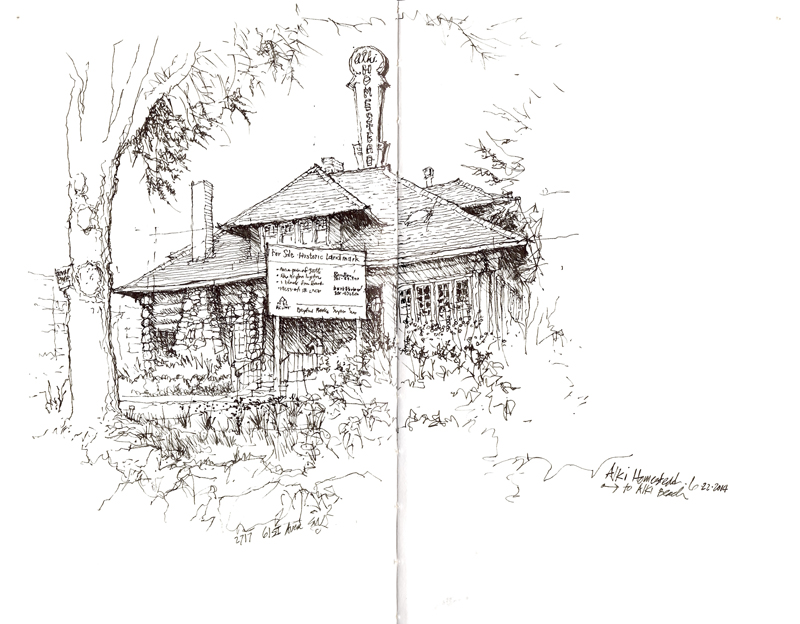
The Homestead Restaurant operated here from 1950 to 2009, when a fire closed the restaurant. Because of plans to demolish the designated landmark, the Washington Trust for Historic Preservation listed the log building as one of their Most Endangered Historic Properties.
The Southwest Seattle Historical Society, the Washington Trust for Historic Preservation, and Historic Seattle all began a campaign to encourage rehabilitation of the property as opposed to rebuilding with new construction. In 2010, the building’s owner expressed interest in selling the Alki Homestead property and, as you can see from the sketch, it is currently for sale.

